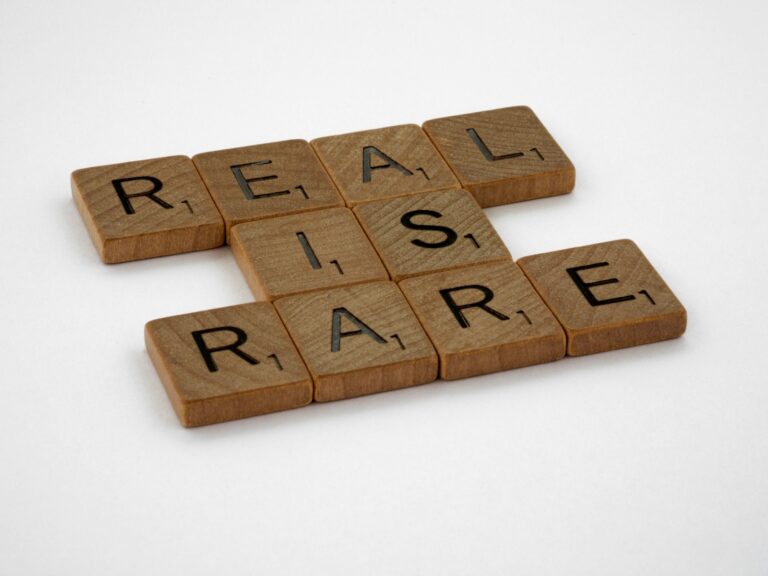Introduction
Empowering Yourself Against Manipulation and Exploitation
In a world where interpersonal relationships can often be complex and challenging, it is crucial to equip oneself with the knowledge and skills necessary to avoid being used by others. The ability to recognize manipulation tactics and set firm boundaries is essential for maintaining healthy and fulfilling connections with those around us. This comprehensive guide aims to provide you with the tools and strategies needed to navigate social interactions with confidence, assertiveness, and self-respect.
The Significance of Setting Boundaries
Boundaries serve as the invisible lines that define where we end and others begin. They are the cornerstone of healthy relationships, helping us establish a sense of self-respect, dignity, and autonomy.
Without clear boundaries in place, individuals may find themselves susceptible to being manipulated or taken advantage of by those who seek to exploit their vulnerabilities. By understanding the importance of setting boundaries early on, you can proactively protect your emotional well-being and cultivate relationships based on mutual respect.
An Overview of Key Strategies
Throughout this guide, we will delve into various aspects of recognizing manipulation, building self-awareness, fostering assertiveness, identifying red flags in relationships, cultivating healthy connections, mastering the art of setting boundaries effectively, and seeking professional help when needed. By exploring these topics in depth and implementing practical advice into your daily life, you can empower yourself to navigate social dynamics with clarity, resilience, and authenticity.
Understanding Manipulation and Exploitation
Definition of manipulation and exploitation
Manipulation is a subtle yet powerful tool that certain individuals use to control and influence others for their own benefit. It involves tactics that are often covert, making it challenging for the victim to identify the manipulation in action.
On the other hand, exploitation refers to taking advantage of someone’s kindness, generosity, or weaknesses for personal gain. Both manipulation and exploitation can manifest in various forms, such as emotional manipulation, financial exploitation, or psychological coercion.
Common tactics used by manipulative individuals
Manipulative individuals are adept at employing a range of tactics to achieve their goals while maintaining control over others. One such tactic is gaslighting, where the manipulator distorts reality and makes the victim doubt their perceptions and sanity. Guilt-tripping is another common strategy used to manipulate individuals into feeling responsible for actions or situations that are not their fault.
Love-bombing involves overwhelming someone with affection and attention to establish emotional dependence quickly. Playing the victim is a tactic where manipulators portray themselves as innocent or wronged to evoke sympathy and manipulate others’ emotions.
The importance of self-awareness in recognizing manipulation
Self-awareness plays a crucial role in identifying when manipulation tactics are being employed against you. By understanding your emotional triggers, vulnerabilities, and boundaries, you can better recognize when someone is trying to manipulate or exploit you.
Developing self-awareness also involves introspection and reflection on past experiences where you may have been manipulated unknowingly. Recognizing patterns of behavior in yourself and others can enhance your ability to detect manipulation early on before it escalates into more harmful situations.
Understanding Manipulation and Exploitation
Definition of Manipulation and Exploitation
Manipulation refers to the act of shrewdly influencing someone into behaving in a way that benefits the manipulator, often to the detriment of the manipulated individual. It involves using cunning tactics to control or exploit another person’s thoughts, emotions, or actions for personal gain.
On the other hand, exploitation involves taking advantage of someone’s vulnerabilities or good nature for one’s own benefit without regard for the other person’s well-being. Both manipulation and exploitation are forms of psychological abuse that can erode an individual’s self-esteem and autonomy over time.
Common Tactics Used by Manipulative Individuals
Manipulative individuals employ various tactics to assert control over others and achieve their goals. Gaslighting is a particularly insidious form of manipulation where the perpetrator distorts facts, denies reality, or undermines the victim’s perception of events to make them doubt their own sanity. This can lead the victim to question their judgment and reality, ultimately giving more power to the manipulator.
Guilt-tripping is another common tactic used by manipulative individuals where they play on a person’s sense of guilt or obligation to manipulate them into doing what they want. By leveraging emotions like shame and remorse, guilt-tripping can coerce individuals into complying with unreasonable demands.
Gaslighting
Gaslighting is a psychological manipulation technique aimed at making someone question their own reality and sanity. The gaslighter distorts facts, denies previous statements or actions, and creates confusion in the victim’s mind.
This leaves the victim feeling disoriented, anxious, and unable to trust their perceptions. Gaslighting can be subtle or overt but always seeks to undermine a person’s confidence in their own thoughts and feelings.
Guilt-Tripping
Guilt-tripping is a manipulative strategy used by individuals to make others feel guilty about not meeting their expectations or demands. By playing on a person’s sense of responsibility or empathy, guilt-trippers aim to induce feelings of shame or obligation in their target. This emotional manipulation can be highly effective in coercing compliance from others as people naturally seek to avoid conflict or hurting those they care about.
Love-Bombing
Love-bombing is a technique used by manipulators where they overwhelm their target with excessive attention, affection, flattery, and gifts in order to create dependency and gain control over them. Initially appearing charming and attentive, love-bombers quickly escalate intimacy levels to form an intense bond with their prey. However, this intense affection often masks ulterior motives such as seeking validation or exploiting vulnerabilities for personal gain.
Playing the Victim
Playing the victim is a tactic employed by manipulative individuals who portray themselves as innocent sufferers in order to garner sympathy, deflect accountability for harmful behaviors, or manipulate others into meeting their needs without question.
Self-Awareness and Assertiveness
Importance of Self-Awareness in Recognizing Manipulation
Self-awareness is the cornerstone of protecting oneself from being used by others. By understanding your own emotions, thoughts, and behaviors, you can become attuned to when someone is trying to manipulate or exploit you.
Being mindful of your reactions in various situations can help you recognize subtle signs of manipulation early on. For instance, if you notice a pattern where someone consistently makes you feel unsure or guilty about your decisions, it could be a red flag for manipulation.
Building Self-Esteem and Confidence to Assert Boundaries
Having a strong sense of self-worth and confidence is crucial for asserting boundaries effectively. When you believe in your own value and worth, you are less likely to tolerate being mistreated or taken advantage of by others.
Building self-esteem involves recognizing your strengths and accomplishments, practicing self-compassion, and embracing your uniqueness. Confidence comes from knowing that it is okay to prioritize your well-being and set boundaries that protect your mental and emotional health.
Practicing Self-Care and Self-Compassion
Self-care and self-compassion play vital roles in empowering yourself against being used by others. Engaging in activities that nurture your mind, body, and soul helps maintain a strong sense of self-respect and resilience in the face of manipulation attempts.
By treating yourself with kindness and understanding, you develop a protective shield against negative influences that seek to exploit your vulnerabilities. Remember that taking care of yourself is not selfish; it is an essential component of maintaining healthy relationships based on mutual respect.
Recognizing Red Flags in Relationships
Identifying signs of toxic relationships early on is crucial for protecting your emotional well-being and avoiding being used by others. One common red flag is when a person consistently disregards your boundaries and pressurizes you to do things that make you uncomfortable.
This could manifest as persistent demands for your time, money, or personal information without respect for your limits or needs. Another warning sign is manipulation through guilt-tripping or emotional blackmail, where the other person tries to make you feel guilty for asserting yourself or prioritizing your own needs.
Understanding the difference between healthy compromise and being taken advantage of is essential in maintaining balanced relationships. While compromise is a natural part of any relationship, it should not come at the expense of your well-being or values.
If you find yourself constantly making sacrifices without receiving anything in return or feeling depleted after interactions with someone, it may be a sign that you are being taken advantage of. Healthy compromise involves mutual respect, communication, and a willingness from both parties to find solutions that benefit everyone involved.
Communication patterns to watch out for
In toxic relationships, communication patterns often revolve around control, manipulation, and lack of transparency. Pay attention to how the other person communicates with you – are they dismissive of your feelings or opinions? Do they frequently resort to yelling, name-calling, or belittling behavior during conflicts?
These patterns can indicate a lack of respect for boundaries and an unwillingness to engage in healthy dialogue. Additionally, watch out for inconsistent messaging or gaslighting techniques where the other person tries to distort reality or make you doubt your perceptions.
Trusting your instincts
Your intuition can be a powerful tool in recognizing red flags and protecting yourself from being used by manipulative individuals. If something feels off in a relationship – whether it’s a sense of unease, discomfort, or suspicion – trust those gut feelings.
Often our instincts pick up on subtle cues and behaviors that our conscious mind may overlook. Cultivating self-awareness and tuning into your inner voice can help guide you towards healthier connections and away from toxic dynamics that erode your self-worth.
Cultivating Relationships Built on Mutual Respect and Trust
In any healthy relationship, mutual respect and trust form the foundation upon which a strong connection is built. Cultivating these aspects requires open communication, empathy, and a genuine desire to understand and support each other.
It involves valuing each other’s opinions, boundaries, and feelings while fostering an environment of acceptance and understanding. By actively listening to one another, showing appreciation, and being trustworthy, you create a safe space where both individuals can thrive emotionally.
Seeking out relationships where respect and trust are reciprocated is crucial for your emotional well-being. When both parties share these values, conflicts are resolved constructively, misunderstandings are minimized, and there is an overall sense of harmony in the relationship.
Building this strong foundation allows for vulnerability without fear of judgment or betrayal. It empowers both individuals to be their authentic selves while feeling secure in the relationship.
Surrounding Yourself with Supportive Individuals Who Uplift You
The company you keep plays a significant role in shaping your outlook on life and influencing your emotional state. Surrounding yourself with supportive individuals who uplift you is essential for maintaining a positive mindset and emotional resilience. These individuals not only provide encouragement during challenging times but also celebrate your successes wholeheartedly.
They offer constructive feedback, genuine care, and unwavering support that bolsters your confidence and self-worth. Building a strong support network involves cultivating meaningful connections with like-minded individuals who share your values and aspirations.
These relationships go beyond surface-level interactions; they involve deep bonds rooted in shared experiences, empathy, and mutual understanding. Investing time and energy into nurturing these connections pays off in terms of emotional well-being as you create a tribe of people who inspire growth, foster positivity, and help you navigate life’s ups and downs with grace.
Investing in Reciprocal Relationships: The Art of Giving & Receiving
Reciprocity lies at the heart of healthy relationships—it’s the art of giving without expecting anything in return while also being open to receiving support when needed. In reciprocal relationships, there is a harmonious exchange of care, love, kindness, and understanding that creates a balanced dynamic between both parties. By recognizing each other’s needs and offering help without hesitation or reservation when required—whether it’s emotional support or practical assistance—you strengthen the bond based on equality rather than dependency.
Investing in reciprocal relationships means being attuned to the needs of others while also communicating your own needs effectively. It involves practicing empathy by putting yourself in someone else’s shoes to understand their perspective fully while expressing gratitude for the reciprocity within the relationship.
Practical Strategies for Setting Boundaries
Setting boundaries is crucial in preventing others from taking advantage of you. One key strategy is effectively communicating your needs to others.
This involves clearly expressing what you are comfortable with and what crosses the line for you. It’s essential to be direct and specific when stating your boundaries, as vague communication can lead to misunderstandings.
Practice using “I” statements to assert your needs without sounding accusatory. For example, instead of saying, “You always make me do things I don’t want to do,” try saying, “I feel uncomfortable when I’m asked to do something that goes against my values.”
Communicating Your Needs Effectively
In addition to verbal communication, non-verbal cues also play a significant role in setting boundaries. Pay attention to your body language and facial expressions when asserting yourself.
Maintaining eye contact, standing tall, and using a firm but respectful tone can convey confidence and assertiveness. It’s important to remember that setting boundaries is not about being aggressive or confrontational but about advocating for your own well-being.
Saying No Without Feeling Guilty
Learning to say no without feeling guilty is a skill that requires practice and self-awareness. Understand that it is perfectly acceptable to prioritize your needs and set limits on what you are willing to do for others.
When declining a request, offer a brief explanation if necessary but avoid over-apologizing or making excuses. Remember that saying no is not a rejection of the person asking but a way of respecting yourself and maintaining healthy boundaries.
Seeking Professional Help if Needed
Recognizing when outside support is necessary
Sometimes, despite our best efforts, we may find ourselves in situations where the manipulation and exploitation have taken a toll on our mental health and well-being. Recognizing when it is time to seek professional help is crucial in reclaiming our sense of self and breaking free from toxic patterns.
Signs that indicate the need for professional intervention include persistent feelings of anxiety, depression, or helplessness, difficulty setting boundaries even after trying various strategies, and a sense of being overwhelmed by emotional turmoil. Seeking therapy or counseling can provide a safe space to explore these complex emotions and gain valuable insights into how to navigate challenging relationships more effectively.
Conclusion
Learning how to avoid being used by others is a journey towards self-empowerment and personal growth. By understanding manipulation tactics, building self-awareness, setting boundaries, recognizing red flags in relationships, and seeking professional help when needed, individuals can take charge of their lives and cultivate healthy connections with others. Remember that it is never too late to prioritize your well-being and establish boundaries that honor your worth.
With commitment and perseverance, you can create a fulfilling life surrounded by supportive individuals who respect and uplift you. Embrace the power within you to shape your relationships on your terms.






